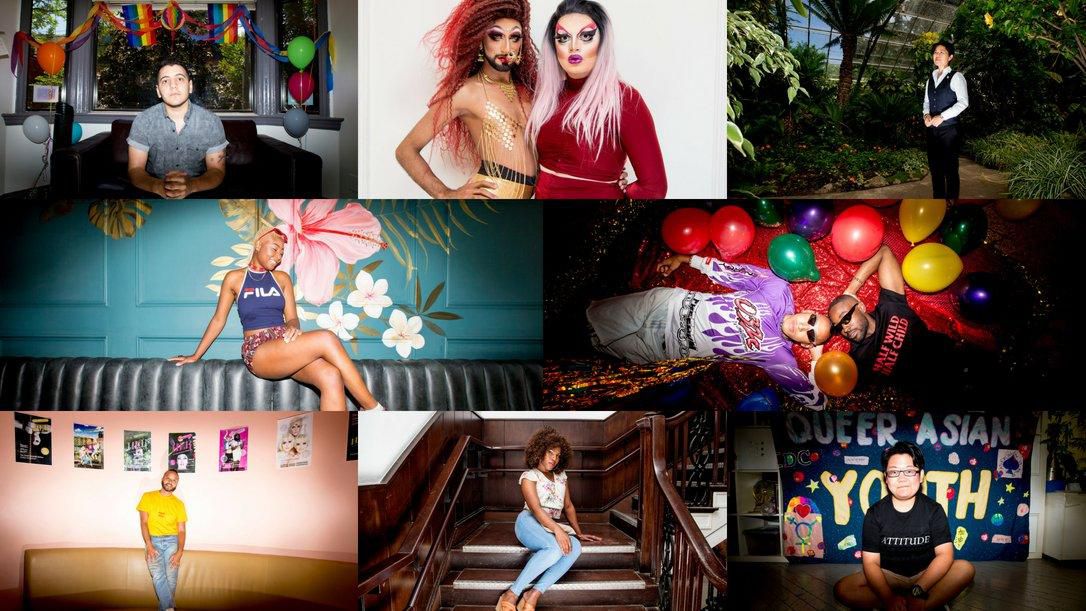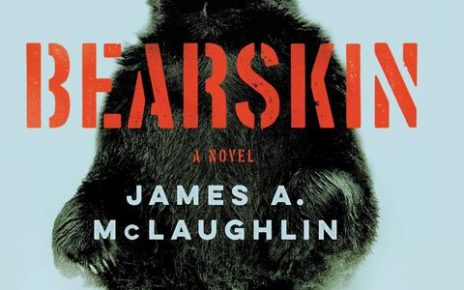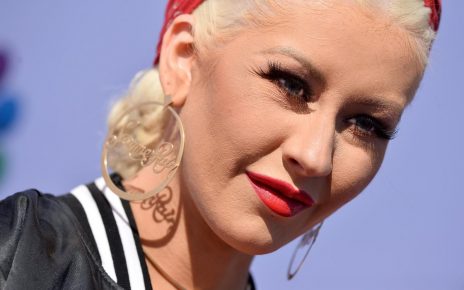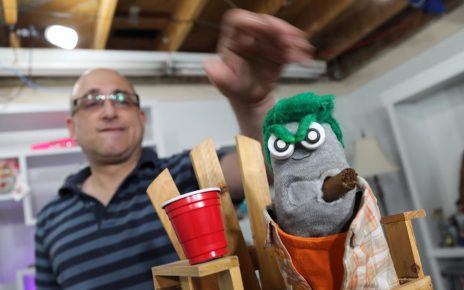Kelsey WilsonToronto Star
Sat., June 23, 2018
Following a “difficult year, including the discovery of deaths of several men in the community,” Pride Toronto executive director Olivia Nuamah is hoping to make safety and inclusiveness a priority.
And it begins with safe spaces.
/https://www.thestar.com/content/dam/thestar/news/gta/2018/06/23/we-asked-10-people-in-the-lgbtq-community-to-share-their-most-cherished-toronto-safe-spaces/pride_profiles_main.jpg)
“Whatever we build, whether a festival stage or a vibrant parade, our spaces are about creating a sense of community,” Nuamah says. “We recognize that safety is deeply personal. It extends beyond the physical to affirming who you are and creating a sense of belonging — that’s what we always aspire to.”
This year’s Pride parade is titled the “Until We’re Safe March,” which will be followed by a moment of silence to pay tribute to the victims of alleged serial killer Bruce McArthur, along with victims of HIV/AIDS, homophobic and transphobic laws, and hate crimes.
“The goal of both the Until We’re Safe campaign and march is to show how far we still have to go to truly be safe. We are using these stories to create empathy for our community,” Nuamah adds.
Article Continued Below
We asked 7 Canadians in the LGBTQ community to name a space in the city that they cherish, why they feel safe there, and what they hope for the future of these places in Toronto.
This is what they said:
/https://www.thestar.com/content/dam/thestar/news/gta/2018/06/23/we-asked-10-people-in-the-lgbtq-community-to-share-their-most-cherished-toronto-safe-spaces/gt1_chanellemarshall.jpg)
Chanelle Marshall, DJ
Location: Wrongbar, Parkdale. Now known as Miss Thing’s
Why does this spot mean so much to you?
It’s important in what I do now, and who I am right now. I had been invited to this LGBTQ party, I didn’t know it at the time. I came because I was following one of my favourite DJs, Bambii.
I just didn’t realize at the time why I was having fun, but now I just realized that it’s because I wasn’t harassed, and people just accepted me. When I started DJing myself, I wanted to spin in places and look for these types of spaces. I always reference it every single time I throw a party, every time I accept to play for a party, I think of this party that I went to where I felt amazing and free.
Article Continued Below
I’m such an open person, me falling in love with a woman, it wasn’t a big decision or a choice. I don’t mind if my parents see this story and learn that I am part of this community. To be honest if my mom finds out, if my father finds out, it’s a part of me. And if they choose to accept me they will, if not, that’s OK too. Because I make choices for myself and I want to be happy. I have a group of friends, I have a support network that do love me and even though I’m not with my ex anymore, we shared so much love and it definitely opened my eyes. Love has no limits. It was quite an experience. And going to parties in these spaces made me realize how much of the community — like I am in it. I’m accepted.
What do you hope for the future of safe and inclusive spaces in the city?
Why aren’t more of those spaces available? You want to be accepted. When you are in a community of people that accept you and accept themselves, then you feel loved. There is a place where you can feel loved even though not everyone is going to accept you.
/https://www.thestar.com/content/dam/thestar/news/gta/2018/06/23/we-asked-10-people-in-the-lgbtq-community-to-share-their-most-cherished-toronto-safe-spaces/chuckyachunli.jpg)
Chuck Yachun Li, volunteer at Asian Community AIDS Services
Location: Asian Community AIDS Services, Chinatown
Why does this spot mean so much to you?
ACAS (Asian Community AIDS Services) makes me feel at home. I can totally be myself. I came to Toronto seven years go, from China. It helped me to integrate into new life here, and also helped me to improve my language skills. But above all, it helped me to build connections with other communities, and also showed me how diverse and inclusive this country is.
The people I work with are inspiring and we learn from each other. Also AIDS supportive organizations like ACAS have outreach programs into the community, and I am happy to see that people are willing to learn about AIDS.
What do you hope for the future of safe and inclusive spaces in the city?
I hope the future of Toronto can be a place where everyone with love and hope can feel safe and at home.
/https://www.thestar.com/content/dam/thestar/news/gta/2018/06/23/we-asked-10-people-in-the-lgbtq-community-to-share-their-most-cherished-toronto-safe-spaces/gt4_bobby_bowen_and_karim_olen_ash.jpg)
Bobby Bowen and Karim Olen Ash, SYBIL collective (and best friends)
Location: The Drake Hotel, West Queen West
Why does this spot mean so much to you?
Bobby: The Drake has always been a safe place for us. We’ve thrown a lot of parties in the community here. They just embraced us. There’s not a lot of spaces in the west end that are very inclusive and The Drake Hotel brings a lot of artists, communities, really good events together. The first time we had a party here was the first time we had someone really behind us, and we got to bring the voguers out.
Karim: It’s an iconic venue in Toronto. They’ve hosted many shows that raised us. This event we’re DJing tonight, A Club Called Rhonda, is the epitome of what Toronto needs all the time. It was fitting that we did this here today. Shout out to Toronto, Kiki Ballroom Alliance, all the voguers. They are super vital to our community, to nightlife. The staff is really nice, the security guards don’t misgender people, they’re very friendly and make you feel welcome. And that’s important for a space in Toronto.
What do you hope for the future of safe and inclusive spaces in the city?
Bobby: I would like to see more venues in the city just really take on more queer events. And people of colour too. Just building more of these communities together instead of making it so secular. We need to make things more inclusive and involve everyone together, bring everyone together as a community.
Karim: I think everyone deserves to feel safe. Any race, any gender, and ethnicity or sexual orientation. I think it’s especially important for those in the LGBTQ community to have a space so they can express themselves fully and not feel like they’re being judged or being oppressed. What I would love to see is more. For example, bathroom policy, having genderless bathrooms. I think that’s a huge step. It shouldn’t matter that you’re a guy or a girl, it should just be a bathroom for all. We’re all going out for the same reason, to have fun, to listen to music, and it should be about coming together. We’re all human.
/https://www.thestar.com/content/dam/thestar/news/gta/2018/06/23/we-asked-10-people-in-the-lgbtq-community-to-share-their-most-cherished-toronto-safe-spaces/gt2_soren_d_alimonte.jpg)
Soren D’Alimonte, musician
Location: Planned Parenthood, The Annex
Why does this spot mean so much to you?
Two years ago, I was living in Toronto and had no consistent general practitioner for my health. I was ready to start hormonally transitioning and looking into getting top surgery, and I found out that Planned Parenthood provided all the services of the general practitioner, and on top of that the doctors and the nurses I worked with weren’t trying to figure out if I was “trans enough” for them to give them the care that I needed. They just wanted to make sure that I was supported. Every question and every step of the way was with care and concern.
They also helped me go through the process of getting the approval for top surgery, via OHIP, and at the time it had just got approved, so it was a little grey, but they helped me figure it out.
The only hard part of transitioning was the anxiety of even taking the first step. It’s your own internal fear and anxiety. I’m glad I did, and I hope that other people in the future, maybe they see this and they can relate to that feeling.
What do you hope for the future of safe and inclusive spaces in the city?
For me, I pass as a cis white dude, so things aren’t so hard for me, especially after transitioning. But there are still people who have mobility issues, or the deaf community, and trans women, or non-binary people who don’t pass, or they don’t want to, but they don’t get the same respect. I think with our younger generation taking over more industries, they’re implementing procedures like sensitivity training and screening their employees to make sure they aren’t going to discriminate against vulnerable people, and they can for their own establishments install ramps, making accessible gender neutral washrooms, not putting too many steps into buildings. I think it’s coming along.
/https://www.thestar.com/content/dam/thestar/news/gta/2018/06/23/we-asked-10-people-in-the-lgbtq-community-to-share-their-most-cherished-toronto-safe-spaces/gt5_kristyn_wong_tam.jpg)
Kristyn Wong-Tam, Toronto city councillor
Location: The Palm House at Allan Gardens, Garden District
Why does this spot mean so much to you?
I stumbled upon it to be honest. I was having a very sad day in the dredge of winter, when the skies were grey and there were no leaves outside. And when I realized what was here, I felt sanctuary, I felt safe. I was out of the closet and was not living with my parents, not by choice. I moved into the downtown east, so I’ve been a resident in this neighbourhood for a number of years, especially because it was very inexpensive to live here. And there was a lot of sadness in my life at the time because I was a teenager, unprepared, and this was one of the few beautiful places in Toronto that I felt that I could comfortably be in. Being here is magical, it takes you to another place.
Back in the 1880s, noted author and cultural thinker Oscar Wilde who was at that time, quite avant-garde — he was a prominent, out homosexual — and he had come to Toronto to lecture. When he was in Toronto he delivered a lecture here, “A House Beautfiful.” So I’ve always wanted to put a heritage Toronto plaque just to signify that Allan Gardens has always been a bit of an intellectual space, a space for the gay community. For decades, before the era of online dating, and Grindr, this was also the cruising ground of people who were same sex and looking for love interests or for romance. There used to be these big tall bushes. That’s how people met, and they met like that largely because they couldn’t meet freely. There were no restaurants or bars for them that welcomed them. There were a few, but this was the sanctuary.
What do you hope for the future of safe and inclusive spaces in the city?
When I think about the tragic events over the past few months, and when I think about the community that has been at risk, whether it’s HIV or just in terms of harm or trauma, I want people to be safe, I want people to know that they’re loved, they’re valued, and that they’re seen. Conventional institutions don’t often take care of our community, which means that we’re going to have to be much more resilient, and recognize that until that service gap is closed, until people can access services freely, and not be fearful that they may be rejected or discriminated, we need to take care of each other.
/https://www.thestar.com/content/dam/thestar/news/gta/2018/06/23/we-asked-10-people-in-the-lgbtq-community-to-share-their-most-cherished-toronto-safe-spaces/armanddigdoyo.jpg)
Armand Digdoyo, event producer and founder of online arts and culture group Yohomo
Location: Glad Day Bookshop, the world’s oldest surviving LGBTQ bookstore, in the Village
Why does this spot mean so much to you?
Glad Day is a cultural hub for the community. They have everything from poetry readings to drag to big dance parties.
Being gay and Asian has obviously had some its challenges in the community, and I just strive to make it better for anyone else who is recently coming out and doing what I can to supporting the current and future generations. I’ve been in nightlife and events for quite a few years and I do remember being part of a minority of queer gay Asian men, and now to see other parts of the community is very special to me.
What do you hope for the future of safe and inclusive spaces in the city?
Even though the community may be growing, we’re finding that these spaces are actually shrinking and becoming a little more limited. So what I hope for the future is that we support the existing ones and create new ones.
/https://www.thestar.com/content/dam/thestar/news/gta/2018/06/23/we-asked-10-people-in-the-lgbtq-community-to-share-their-most-cherished-toronto-safe-spaces/eva_simone.jpg)
Eva Simone, Trans advocate and performer
Location: The 519, the Village
Why does this spot mean so much to you?
The 519 has been the epicentre of LGBT life in downtown Toronto. It caters to a wide range of communities, and peoples from immigrant communities to local communities. All gender, all diaspora, all sexual orientations. It is home for LGBT people.
What do you hope for the future of safe and inclusive spaces in the city?
I hope for the future that we don’t have to think about safe spaces anymore, because everywhere will be a safe space for everybody navigating the earth. That is my dream. That safe space will become redundant in the near future.
/https://www.thestar.com/content/dam/thestar/news/gta/2018/06/23/we-asked-10-people-in-the-lgbtq-community-to-share-their-most-cherished-toronto-safe-spaces/humza_and_ryan.jpg)
Humza Ali Mian, Veterinary Technician and Ryan Persadie, high school teacher and musician (a couple)
Location: An Airbnb near the Village
Why does this spot mean so much to you?
Humza: I’m getting ready in an Airbnb because it’s not safe for me to do it at home. I have a very conservative family, and they just wouldn’t understand drag, let alone being queer.
Ryan: Especially for queer people of colour, it’s really hard to find spaces we can do things safely. Especially drag, when we’re playing with femininity and hyper-femininity when males are not supposed to do that. We are not able to do this at home, so we have look for places to do this safely, and not feel like we’re always on guard.
What do you hope for the future of safe and inclusive spaces in the city?
Humza: For the future of safe spaces, I hope they can literally be anywhere. It can be at someone’s house, at your own house, instead of having to travel miles away to hide something that’s so important to you.
Ryan: For me, coming from an Indo-Caribbean background, there aren’t a lot of spaces at all for us. There aren’t any for us to just be. I’m really hopeful that we can create these spaces so that people can exist safely, but also feel that they can be true to themselves
TOP STORIES, DELIVERED TO YOUR INBOX.
NEW NEWSLETTERHEADLINES






